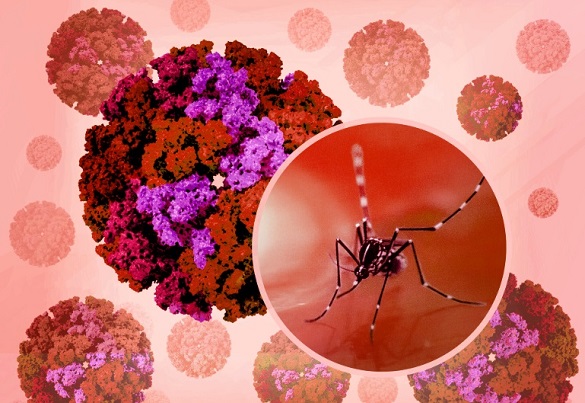Thailand Medical Researchers Find Link Between Blood Group O and Higher Risk of Chikungunya
Nikhil Prasad Fact checked by:Thailand Medical News Team Aug 14, 2025 6 months, 2 hours, 8 minutes ago
Thailand Medical: Chikungunya and The Curious Role of Blood Types
Medical Researchers from Walailak University and their collaborators at the University of Jaffna in Sri Lanka have uncovered surprising evidence linking a person’s blood type to their chances of contracting the Chikungunya virus. This mosquito-borne disease, spread mainly by Aedes aegypti and Aedes albopictus, often causes high fever, rash, and intense joint pain that can linger for months. While there is no specific cure, treatment focuses on easing symptoms with rest, fluids, and medications. This
Thailand Medical News report is based on a systematic review and meta-analysis that examined studies from multiple countries, totaling 24,828 participants.
 Thailand Medical Researchers Find Link Between Blood Group O and Higher Risk of Chikungunya
The Big Discovery – Blood Group O Stands Out
Thailand Medical Researchers Find Link Between Blood Group O and Higher Risk of Chikungunya
The Big Discovery – Blood Group O Stands Out
The research team analyzed seven studies and found no consistent link between blood groups A, B, AB, or the Rh factor and the risk of infection. However, people with blood group O were 1.52 times more likely to get Chikungunya compared to those with other blood types. The finding was consistent across various study designs and quality levels, although there was significant variability between studies. Interestingly, some regions reported different patterns – for example, in parts of India, groups A and AB with Rh-positive status had higher risks, while in Bangladesh, group O was most affected.
Why Blood Type Might Matter
Scientists believe that blood group antigens – the specific molecules present on the surface of red blood cells – could influence how viruses interact with the body. In other diseases, like malaria, norovirus, and COVID-19, certain blood types have been linked to higher or lower infection risks. For Chikungunya, it’s possible that the absence of A and B antigens in group O individuals alters how the immune system recognizes or responds to the virus. Still, the exact biological mechanism remains unknown and may vary by population genetics and environmental conditions.
The Global and Thai Context
Chikungunya is widespread, with outbreaks recorded in 119 countries. Thailand has experienced multiple outbreaks, the largest between 2018 and 2020, affecting more than 27,000 people in 60 provinces. Understanding whether blood type plays a role in susceptibility could help target prevention strategies, especially in high-risk groups and outbreak-prone regions.
A Call for More Research
Although the link between blood group O and higher risk is statistically significant, the researchers caution against overinterpreting the results. The studies reviewed used different diagnostic methods, population groups, and sample sizes, leading to high variability. More large-scale, well-designed studies are needed to confirm the association and explore the underlying biological reasons.
Conclusions
The finding
s suggest that people with blood group O might be more susceptible to Chikungunya infection, but this does not mean that other blood groups are safe. Anyone in areas with active transmission should take precautions, such as avoiding mosquito bites and eliminating breeding sites. If future research confirms these results, blood group typing could become a valuable tool in identifying higher-risk individuals and improving outbreak preparedness.
The study findings were published in the peer reviewed journal: Medicina
https://www.mdpi.com/1648-9144/61/8/1316
For the latest on Chikungunya, keep on logging to
Thailand Medical News.
Read Also:
https://www.thailandmedical.news/news/uk-study-finds-that-chikungunya-virus-nsp3-protein-blocks-key-immune-pathway
https://www.thailandmedical.news/news/new-concerns-in-pune-india-as-chikungunya-survivors-face-long-term-health-issues
https://www.thailandmedical.news/news/silico-study-reveals-potential-antiviral-properties-of-nyctanthes-arbor-tristis-linn-against-ebola-sars2-nipah-chikungunya-viruses
